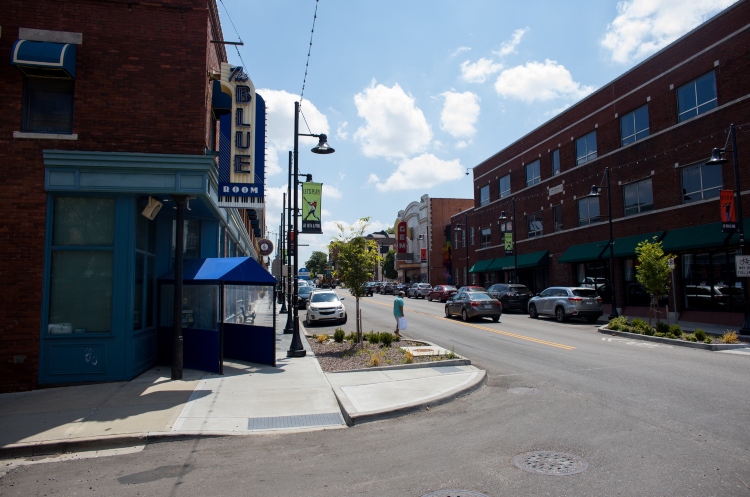The Center for Neighborhoods at UMKC received a three-year, $300,000 grant from the Ewing Marion Kauffman Foundation to study the opportunities and challenges that Black and Hispanic entrepreneurs face starting new businesses in urban neighborhoods in Kansas City.
“Entrepreneurs and local businesses face a challenging environment for starting new or sustaining businesses in Black and Hispanic communities,” Dina Newman, director of the Center for Neighborhoods, says. “They encounter barriers such as lack of access to capital, inconsistent financing and pre-existing economic challenges related to redlining. We were honored to be invited by the Kauffman Foundation to apply for this funding.”
The Kauffman Foundation grant will support a community-focused research process that will examine the place-based challenges that entrepreneurs face due to a legacy of racially biased development restrictions. In addition, the Center will develop new knowledge about entrepreneurship opportunities for Black and Hispanic business owners.
“While we know that these entrepreneurs face race-based challenges, what is not as clear is how these challenges are compounded by the perception of their business locations by outside interests, especially financial institutions,” Jacob Wagner, associate professor and director of Urban Planning + Design says. “This study will allow us to research that impact.”

The Center will work with neighborhood and community networks to build relationships with Hispanic and Black entrepreneurs and develop a baseline analysis of the place-based challenges they face.
The second year of the grant will build on the first with a series of Asset Walks, an interactive and collaborative process in which the research team and local leaders will gather information from local entrepreneurs through informal meetings.
The results of the information from the Asset Walks combined with the baseline analysis will provide data for the center to understand which barriers to successful entrepreneurship are individualized, locational or systemic and which are a combination of these components.
The results of the study will not be purely academic, but a road map to success in rebuilding urban neighborhoods.
“We expect that this research will result in the development of new programs, workshops and training that will strengthen the ability of neighborhood organizations to be catalysts for escalating business development in the urban core,” Newman says.
“While we know that these entrepreneurs face race-based challenges, what is not as clear is how these challenges are compounded by the perception of their business locations by outside interests, especially financial institutions. This study will allow us to research that impact.” — Jacob Wagner
The Kauffman Foundation is a private, nonpartisan foundation based in Kansas City, Mo., that seeks to build inclusive prosperity through a prepared workforce and entrepreneur-focused economic development. The Foundation uses its $3 billion in assets to change conditions, address root causes and break down systemic barriers so that all people – regardless of race, gender or geography – have the opportunity to achieve economic stability, mobility and prosperity.
The Center for Neighborhoods is one of six recipients of funding from this community-engaged research request for proposal.
“We’re excited to support community engagement in the research process through this grant portfolio,” says Chhaya Kolavalli, senior program officer, Knowledge Creation & Research, Entrepreneurship. “These six projects aim to build equitable, collaborative, solution-driven initiatives between communities and researchers with the potential to advance inclusive prosperity through entrepreneurship.”
The Kauffman Foundation anticipates that findings from this project will provide practical insights and knowledge for communities, entrepreneur support organizations, ecosystem stakeholders, policymakers, researchers and philanthropy into how to develop equitable entrepreneurial ecosystems.

